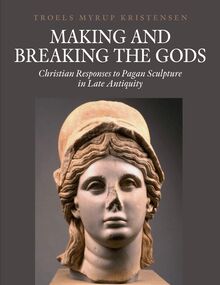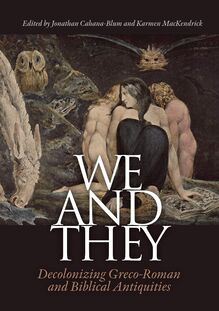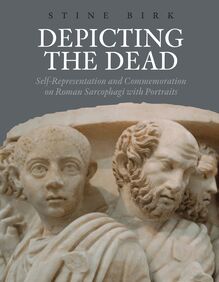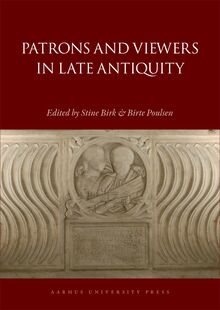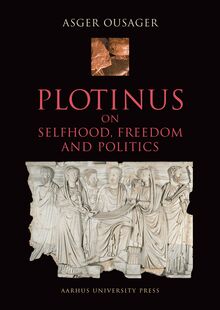-
 Univers
Univers
-
 Ebooks
Ebooks
-
 Livres audio
Livres audio
-
 Presse
Presse
-
 Podcasts
Podcasts
-
 BD
BD
-
 Documents
Documents
-
- Cours
- Révisions
- Ressources pédagogiques
- Sciences de l’éducation
- Manuels scolaires
- Langues
- Travaux de classe
- Annales de BEP
- Etudes supérieures
- Maternelle et primaire
- Fiches de lecture
- Orientation scolaire
- Méthodologie
- Corrigés de devoir
- Annales d’examens et concours
- Annales du bac
- Annales du brevet
- Rapports de stage
La lecture à portée de main
Vous pourrez modifier la taille du texte de cet ouvrage
Découvre YouScribe en t'inscrivant gratuitement
Je m'inscrisDécouvre YouScribe en t'inscrivant gratuitement
Je m'inscrisEn savoir plus
Vous pourrez modifier la taille du texte de cet ouvrage
En savoir plus

Description
Sujets
Informations
| Publié par | Aarhus University Press |
| Date de parution | 20 août 2004 |
| Nombre de lectures | 0 |
| EAN13 | 9788771246698 |
| Langue | English |
Informations légales : prix de location à la page 0,1600€. Cette information est donnée uniquement à titre indicatif conformément à la législation en vigueur.
Extrait
ASGER OUSAGER
PLOTINUS ON SELFHOOD, FREEDOM AND POLITICS
Acta Jutlandica LXXIX:1
Humanities Series 76
Aarhus Studies in Mediterranean Antiquity (ASMA)
VI
ASMA is a series published by The Centre for the Study of Antiquity at the University of Aarhus, Denmark.
The Centre is a network of cooperating departments of Classics, Classical Archaeology, History, and the Faculty of Theology. The objective of the series is to advance interdisciplinary study by publishing proceedings and monographs that reflect the current activities of the Centre.
Til Bent og Gerda
Introduction
Selfhood
What is an individual according to Plotinus, and is the individual (pre)-determined or free?
My investigation tries to answer these essential questions by first analysing what distinguishes persons from each other. Plotinus raises this issue several times and it is also presented as a peculiar Plotinian problem by several scholars, for instance, tienne Vacherot, Henry Blumenthal and most recently Gabriela Carone and Richard Sorabji. The difficulty has three subsections:
A. If particular souls are all parts of Soul and are, in one phase of their mystical ascent at least, to be identified with the Soul as such, what still differentiates them from each other?
B. If human souls with their particular intellects are all parts of Intellect and are, in a following phase of their mystical ascent at least, to be identified with the Intellect as such, what still differentiates them from each other?
C. Again, if they all in some way participate in the One and may possibly, as an end stage of their mystical ascent, be identified with the One as such, what still differentiates them from each other?
In a loose manner of speaking, the body is the answer to the first question, since particular bodies both demand and presuppose particular souls, which are prior to the bodies. Particular human souls, which, as human, will all have particular intellects, originate as intellects from Intellect as such.
The fact that these souls have particular intellects is the answer to the second question, because the particular intellect is at the same time a Form of the particular soul, no matter when or where it is embodied. This criterion is, for instance, what fundamentally distinguishes identical twins, even if we suppose they have apparently identical bodies and, in the same vein, apparently identical souls. The Form of the particular, which is at the same time an intellect, has its particular angle of intentionality within Intellect and upon the One. This Form determines the descents and ascents of the particular person in the cycles of reincarnation.
Ascent is, ultimately, directed towards unification with the One, because the One is the only thing that can really unify the soul. Plotinus considers this premise a tautology. Only in so far as the human soul becomes the One is a human being really an individual in the literal sense. The One is therefore the real Self of any human being. Against the interpretations of Jean Trouillard, Pierre Hadot and Dominic O Meara and in support of a previous view put forward by John Rist, I will provide plausible evidence that the autobiographical sketch of Plotinus in IV.8.1 indicates unification with the One, and not only with Intellect. In the less autobiographical speculations, especially in VI.9, these stages of unification are generalised as options for the whole of mankind. Against the theistic interpretations of Ren Arnou, Rist, Arthur Hilary Armstrong, Blumenthal, Gerard O Daly and Hadot among others, it is shown that duality cannot be preserved at this stage.
Instead, in support of Plato Mamo s monistic thesis of unification in Plotinus, it is shown that in ultimate unification, particularity must be completely dissolved by unification with the One. The text indicates that such complete unification is possible. It does not let the particular intellect, the particular soul and the particular body disappear at once, for the One continuously recreates particulars. Not the particular soul, but only its previous selves have been obliterated and replaced by the Self of the One.
Just as the text indicates a stage of indistinguishability of the human self and the One, it also indicates the stages of ascent before and descent right after ultimate unification as stages of vision involving an object outside the subject. This kind of vision is superseded by ultimate unification.
Since ultimate unification is possible, there must be some element corresponding to the One inherent in the human soul. In fact, Plotinus says that all three original natures are within the human soul, i.e. encompassing the One. The One is potentially within everything, but the human soul can also actualise this potentiality by ascent. The probability that such a doctrine is present in Plotinus is strengthened by its occurrence in Proclus, a late Neoplatonist follower of Plotinus, and by the probable Christian transformation of the original Plotinian doctrine into Augustine s doctrine of the image of the whole Trinity within the human soul.
Against widespread Aristotelian prejudices concerning the interpretation of Plotinus in this connection, most succinctly exhibited by Carone and Sorabji, I conclude that in Plotinus, the point of distinction between human souls from each other is not plurality within the sensible world, but the very opposite. The point of departure for this distinction is not even Intellect but rather the indistinguishability within the One. The One within the particular human soul is derived directly from the One Itself.
Freedom
Given that human souls have their origin directly in the One, what, then, distinguishes them from each other? There has to be a sufficient reason for the distinction. The One itself is not only the ultimate cause ( aition ) of everything, but also the ultimate reason ( aitia ) for everything including itself, according to Plotinus interpretation of Plato, which he formulates as a response to the problem surrounding the relation between arbitrary will and modal necessity in the Euthyphro . I argue that Hadot s thesis of the One in Plotinus as a cause of itself ( causa sui ) on the other hand, is unwarranted.
Providence is the name of the sufficient reason that governs everything flown from the One towards the best, i.e. towards unification. In order to avoid indistinctness with the resulting identity of human souls in only one human soul, it would be necessary for the preference ( proairesis ) of each soul to be different from that of any other soul from the very beginning. Consequently, the series of resulting choices and dispositions of souls will be quite different from each other. The series and the decisive beginning of the series are contained within the Form of the particular soul. Providence also determines which human souls will ascend to ultimate unification with the One. Human unification with the necessary determinant, namely the One as absolute freedom , must have indeterministic causal consequences for the whole causal hierarchy. In particular, such indeterministic causal consequences will follow for the human soul attaining ultimate unification, as the determinism of Providence again determining the Form of the particular is disrupted by this intervention. This Form will, however, be recreated and adjusted to the new state of affairs generated from ultimate freedom, as the human soul must descend again. Here, Plotinus is probably giving what he believed to be the Platonic answer to the problem surrounding the relation between self-determination and determinism discussed by the Stoics and Alexander of Aphrodisias - a discussion most recently scrutinised by Susanne Bobzien. Plotinus denies self-determination of the One and consequently the One as a causa sui because this premise would restrict the One s absolute measure of freedom. Instead he affirms human self-determination as derived from that absolute freedom.
Politics
These views on ascents into and descents out of absolute freedom have political implications for exterior freedom as well. Against the still pervasive traditional view of Plotinus as apolitical, I set out to present all existing evidence and indications for a political philosophy in Plotinus.
The benevolent Providence consisting of material conditions and political circumstances behind the development of Plotinus quite comprehensive philosophy is discussed first. According to Plato s broad definition of politics as the art ( techn ) of the soul, Plotinus philosophy is no doubt political. It implies references to the One as the king and to Providence as the general and the legislator, all of which are presented as ideals for human social conduct and legislation in a sensible world at war with itself. Although it is not straight away manifested in the social order, there is an order relying on the basic inequality of the merits and value of persons according to their descents and ascents. Plotinus views on the acquisition of power and wealth are likewise spiritualised but indicate, after all, some conservative and libertarian values against, for instance, the abstract egalitarianism of the Gnostics. These conservative values encompass an adherence to the rule of law and opposition to tyrannical imperialism. He presents the ideal of a mixed constitution with elements of kingship, aristocracy and democracy.
The basic element that distinguishes the political philosophy of Plotinus from that of Plato as well as Aristotle is the emphasis he places on natural authority, mutual cooperativeness and the immense potential of everybody, even slaves. His political philosophy deals with the theoretical relation noted in previous parts of the book between determinism and freedom as manifesting itself in the corresponding practical relation between oppression and liberation. A tension pointed out within Plotinus system is, in the end, the opposition between th
-
 Univers
Univers
-
 Ebooks
Ebooks
-
 Livres audio
Livres audio
-
 Presse
Presse
-
 Podcasts
Podcasts
-
 BD
BD
-
 Documents
Documents
-
Jeunesse
-
Littérature
-
Ressources professionnelles
-
Santé et bien-être
-
Savoirs
-
Education
-
Loisirs et hobbies
-
Art, musique et cinéma
-
Actualité et débat de société
-
Jeunesse
-
Littérature
-
Ressources professionnelles
-
Santé et bien-être
-
Savoirs
-
Education
-
Loisirs et hobbies
-
Art, musique et cinéma
-
Actualité et débat de société
-
Actualités
-
Lifestyle
-
Presse jeunesse
-
Presse professionnelle
-
Pratique
-
Presse sportive
-
Presse internationale
-
Culture & Médias
-
Action et Aventures
-
Science-fiction et Fantasy
-
Société
-
Jeunesse
-
Littérature
-
Ressources professionnelles
-
Santé et bien-être
-
Savoirs
-
Education
-
Loisirs et hobbies
-
Art, musique et cinéma
-
Actualité et débat de société
- Cours
- Révisions
- Ressources pédagogiques
- Sciences de l’éducation
- Manuels scolaires
- Langues
- Travaux de classe
- Annales de BEP
- Etudes supérieures
- Maternelle et primaire
- Fiches de lecture
- Orientation scolaire
- Méthodologie
- Corrigés de devoir
- Annales d’examens et concours
- Annales du bac
- Annales du brevet
- Rapports de stage
